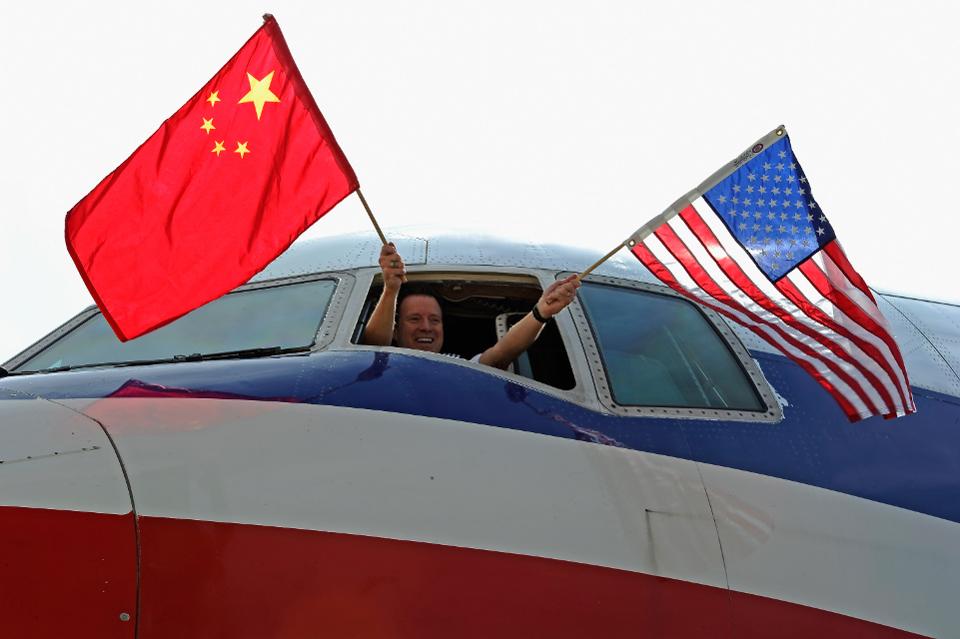Jane Sun is the CEO of trip.com, a Chinese travel and tourism company, and a Chinese World Travel and Tourism Council Executive Committee member.
Therefore an article released today by trip.com and pushed to journalists worldwide through a paid media platform is timely and exciting news but may have a flip side to it.
According to eTN sources, Jane is trying to become the chairman of WTTC. Insiders say chances are slim.
Most WTTC members are from the United States and Europe, representing the world’s most prominent travel industry businesses.
They may not want a CEO of a company based in communist-run China at a time when the global influence of tourism is already becoming a geo-political snowball effect.
Going back to the UNWTO General Assembly in 2017 in Chengdu, China, eTurboNews laid out a theory of why Zurab Pololikashvili was elected in Chengdu as the UNWTO Secretary-General.
eTN had reported about a meeting with the Secretary-General and CNTA on August 28, 2017. It was assumed the possible outcome of Chinese participation in UNWTO may have been already sealed and agreed on before the Chengdu GA.
That the Georgian Secretary-General appointing a Chinese Executive Director after he took office was no surprise.
His secret meetings in China before his election could raise suspicion about Chinese interests in getting Zurab to become the political leader of the global travel and tourism industry.
This was followed by an unsuccessful attempt by the Chinese to gain more global influence over tourism when they celebrated the creation of the World Tourism Alliance, a China-style Global Tourism Organization that wanted to bring the global public and private sectors with Chinese influence in mind.
The second attempt by China to gain back its influence in global tourism may be at this time with Jane Sun, CEO of Chinese-based trip.com, running for the WTTC Chairman.
eTurboNews, however had recently predicted Monaco-based Manfredi Lefebvre to become the next WTTC Chair.
If Zurab and Jane were the two most influential leaders in tourism, and both were obligated to China, Chinese influence would gain, not only in travel and tourism but through the economic power of travel and tourism. This would be especially true in small island states and developing countries.
It could create a real global challenge in some of the tiny Pacific Island nations where tourism investments are essential and military alliances with China would help the developing crisis around Taiwan and North Korea.
According to UNWTO, the UN-affiliated agency looked to “Re-Write Tourism History” at the official re-opening of China announced in February this year.
Trip.com, as a respectable business with global influence, today, released the following encouraging story.
The article by the Chinese travel company says:
It’s been a month since the Chinese mainland resumed issuing all types of visas for foreign nationals, which came into effect on March 15. The widely welcomed move saw an influx of bookings as travelers sought to rediscover China once again.
Analysis of Trip.com data shows that international travelers’ interest in the Chinese mainland increased significantly in the last few weeks compared to the same period in 2019.
Looking at the travel period of 15 March 2023 to 14 April 2023, international users searching for hotels in the Chinese mainland on Trip.com was up 126% compared to the same period in 2019, with a seven-fold increase on 2022 levels.
Chinese mainland hotel bookings by international travelers also followed the same trend, rising by a third (32%) compared to pre-pandemic levels.
Despite flights operating to the Chinese mainland recovering year-on-year, bookings are still recovering, sitting around a quarter (26%) below 2019 levels due to constrained supply.
UK and US travelers showed an increasing interest in visiting the Chinese mainland.
Travelers from Hong Kong, Korea, Taiwan, the UK, the US, Japan, and Singapore made the most flight bookings to the Chinese mainland last month, confirming that pent-up demand for travel to the region is being realized.
These markets have evolved since the pandemic, with the destinations making the most Chinese mainland flight bookings in 2019 being Hong Kong, Korea, Taiwan, Japan, Singapore, and Australia.
Interestingly, neither the UK nor the US did not feature in the top list for flight bookings to the Chinese mainland pre-pandemic, but in the last month have shown significant growth for inbound travel to the region.
Leisure destinations are all the rage.
Data shows that travelers are also keen to re-explore China’s most famous tourism hotspots, with Shanghai, Beijing, and Guangzhou being the most popular flight destinations – the same as in 2019. The more leisure-oriented cities of Xiamen, the southeast beach city, and Chengdu, home of the Giant Panda, have also seen encouraging inbound growth, rising to fourth and fifth, respectively, as the industry continues to see growth in the premium leisure sector.
Travelers turned to last-minute bookings throughout the pandemic due to ever-changing travel restrictions, but the latest data shows this has now reverted beyond pre-pandemic levels.
In 2019, Trip.com users booked their hotel stays around four days before their stay; however, data from the last month shows that the 2023 booking window has grown to six days as customers gain confidence in the market and look to get value for money.
The same trend can be seen for air travel, with Trip.com travelers booking flights 15 days in advance – up from 14 days pre-pandemic.
These encouraging figures are echoed across the Asia-Pacific region, with bookings to Japan and Korea also recording solid year-on-year growth.




